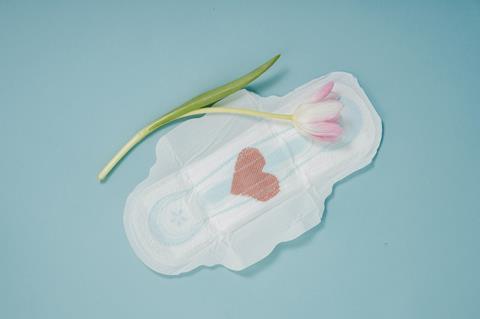Midwife Michelle Tant explains that to ignore and fear the period is to misunderstand God’s message of hope. And she suggested it should be talked about more, not less.

Society has a complicated relationship with periods. Period product adverts bear no resemblance to the lived experience of women. Menstrual blood isn’t blue, nor do most women feel like roller-skating throughout their time of the month. Even recent research has shown that period protection products are not in step with the requirements of women’s cycles, pointing to a reluctance to engage meaningfully in this significant conversation. It is only in recent years when periods have been talked about in anything more than hushed tones, and girls still pass tampons between them at school like contraband.
Is the church any different? I don’t know that I have ever heard a preach about periods but the Bible doesn’t shy away from them and neither should we. I’d therefore like to take a brief look at some of the trickier texts about menstrual bleeding in the Bible.
The ancient church deemed women inherently unclean and we have been attempting to untangle this ever since.
Leviticus is probably one of the heavy hitters when it comes to verses about menstruation. In the book, chapters 15, 18 and 20 discuss menstrual impurity, going on to say that anyone and anything that touches a woman during her period becomes unclean. These scriptures can be confusing if you take them at face value for all women, for all time. The ancient church fell foul of this and went on to use these passages to prohibit women from multiple aspects of church life including communion and leadership. They deemed women inherently unclean and we have been attempting to untangle this ever since.
Remembering that men were not excluded from ritual cleansing is helpful, and when we return to Leviticus 15 we see equal uncleanliness associated with male seminal discharge. These Levitical laws were concerned with the reduction of disease, and blood, though a symbol for life, in a very practical sense when lost, is a vehicle for decay and disease. Protecting the community through cleanliness, at a time when menstrual protection was not as effective, had to be a priority. Acknowledging the particular vulnerability of women during childbearing and menses also served as a protection from sexual advances at a time period when women held little autonomy over their bodies.
Read more on wellbeing
Am I a bad Christian if I have anxiety?
Ancient texts, without context can be difficult to understand. In Ezekiel 18:6 we read that the ways of the people of Israel, as they defiled their land were to God like the uncleanness of a woman in her menstrual impurity. This seems to suggest that God found women’s periods to be repellent, except we know that menstruation is not a sin and is in fact part of God’s perfect creation.
Period blood isn’t sinful but does need washing and in this way the cycle serves us with the reminder that while we suffered the fall, we must, and can, be washed clean. The new covenant we have through the shedding of Jesus’ blood rid us of the need for the ceremonial cleansing demanded in the Old Testament. Context is key and the Levitical laws were full of reminders of the holiness of God and the lengths humans needed to go to to purify themselves.
Acknowledging the vulnerability of women during childbearing and menses served as a protection from sexual advances at a time when women held little autonomy over their bodies.
The woman’s body and cycle embody so many messages of creation, loss, God’s goodness and his faithfulness through pain. The world’s preoccupation with minimising the effect of the cycle is not reflected in the Bible. In the Bible it is protected and acknowledged as both a vulnerability and life-giving strength. To ignore and fear the period is to misunderstand God’s message of hope. It should be talked about more, not less. Therefore, I welcome the recent research and hope that it sparks more conversations, including Christian circles and perhaps even pulpits.




































1 Reader's comment